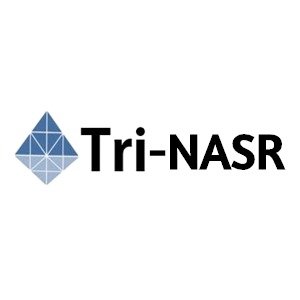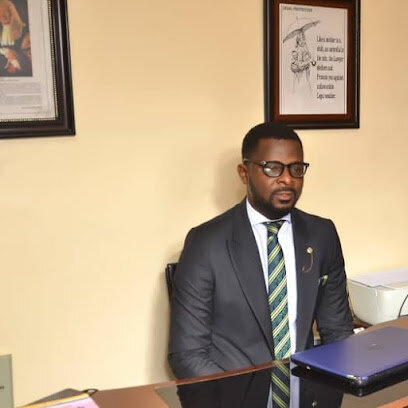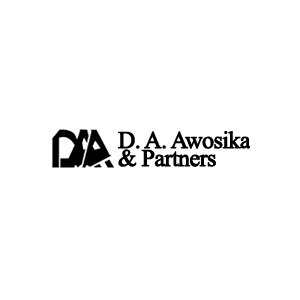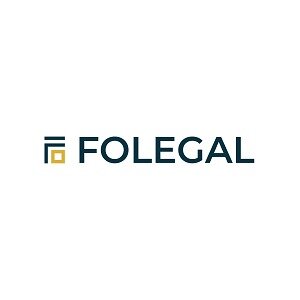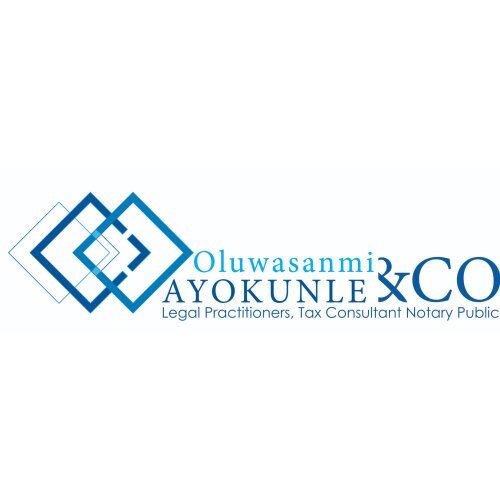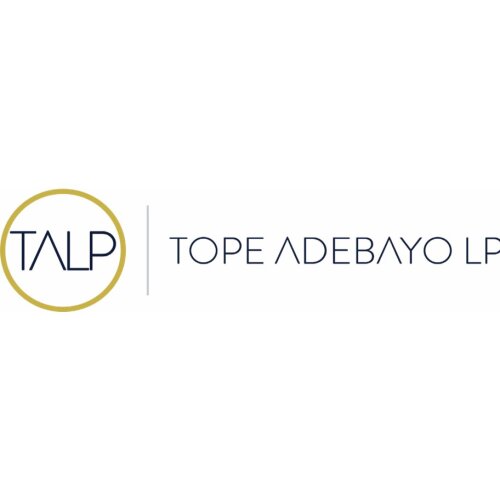Best Restructuring & Insolvency Lawyers in Ikeja
Share your needs with us, get contacted by law firms.
Free. Takes 2 min.
List of the best lawyers in Ikeja, Nigeria
About Restructuring & Insolvency Law in Ikeja, Nigeria
Restructuring and Insolvency law in Ikeja, Nigeria, plays a crucial role in supporting businesses and individuals facing financial distress. The law provides a legal framework for addressing situations where debtors are unable to meet their financial obligations, offering options for reorganizing debts, protecting assets, and sometimes liquidating assets to satisfy creditors. Ikeja, being an active commercial hub in Lagos State, sees a diverse range of restructuring and insolvency matters, making legal guidance essential for both companies and individuals hoping to navigate financial challenges effectively and lawfully.
Why You May Need a Lawyer
There are several scenarios where securing the services of a restructuring and insolvency lawyer in Ikeja becomes necessary. Common situations include:
- Your business is struggling to pay its debts or has become insolvent.
- You are facing creditor pressure, legal demands, or the threat of bankruptcy.
- You wish to negotiate better terms with creditors or explore out-of-court restructuring.
- You are a creditor looking to recover outstanding debts from insolvent borrowers.
- You want to ensure compliance with local laws while restructuring your finances or assets.
- You are considering voluntary liquidation or need guidance through court-mandated debt recovery processes.
A lawyer experienced in restructuring and insolvency can help you understand your rights and obligations, represent your interests before courts or negotiation tables, and assist in structuring effective recovery or exit strategies.
Local Laws Overview
The primary legal framework for restructuring and insolvency in Nigeria, and by extension Ikeja, is the Companies and Allied Matters Act (CAMA) 2020. This law governs corporate insolvency processes, including company administration, receivership, and liquidation. The Bankruptcy Act applies to individuals. There are also supporting regulations from bodies such as the Corporate Affairs Commission (CAC), Securities and Exchange Commission (SEC), and relevant courts.
Key aspects of local laws include:
- Voluntary and involuntary liquidation procedures
- Receivership, where a receiver is appointed to take control of assets for the benefit of secured creditors
- Company voluntary arrangements and schemes of arrangement
- Administration orders, allowing court intervention to protect and restructure viable businesses
- Out-of-court workouts and creditor negotiations
- Priority of claims, including the treatment of secured and unsecured creditors
- Statutory requirements for filing documents and keeping records with the Corporate Affairs Commission
The legal process can be complex, so professional guidance is strongly advised.
Frequently Asked Questions
What is insolvency?
Insolvency refers to the inability of a person or company to pay their debts as they become due. It may result from cash flow shortages or having liabilities that exceed assets.
What is the difference between restructuring and insolvency?
Restructuring involves reorganizing a business's structure, debts, or operations to restore its financial health, often before full insolvency occurs. Insolvency, on the other hand, indicates a state where an individual or company is unable to pay debts and may lead to legal proceedings such as liquidation or bankruptcy.
What are the main steps in a company liquidation in Ikeja?
Liquidation involves appointing a liquidator who collects the company’s assets, pays off creditors in order of priority, and distributes any remaining assets to shareholders. The process may be voluntary or court-ordered in cases of insolvency.
Can individuals declare bankruptcy in Nigeria?
Yes. The Bankruptcy Act provides a legal procedure for individuals who are unable to pay their debts. This process involves filing a petition in court, after which the courts and trustees administer the debtor’s estate for the benefit of creditors.
What protections exist for creditors?
Creditors are given legal rights to recover debts, often by appointing receivers, initiating insolvency proceedings, or lodging claims during liquidation. Secured creditors typically have priority over unsecured creditors when distributing assets.
When should a business consider restructuring?
Businesses should consider restructuring when facing persistent financial difficulty, significant changes in their market, excessive debt, or operational inefficiencies impacting cash flow.
How can a lawyer assist in restructuring or insolvency matters?
A lawyer can help assess the viability of restructuring, represent parties in negotiations, prepare necessary legal documents, ensure compliance with regulations, and provide representation in court.
Can debts be written off during insolvency proceedings?
Yes. Some debts may be written off or settled for less than the full amount through insolvency processes, depending on the available assets and the agreement reached with creditors.
Are directors personally liable for company debts?
Generally, company directors are not personally liable for company debts unless there is evidence of fraud, reckless trading, or breaches of fiduciary duty.
What is a receivership?
Receivership is a process where a secured creditor appoints a receiver to take control of specific assets pledged as security under a loan agreement to recover outstanding debt.
Additional Resources
If you need more information or support with restructuring and insolvency issues in Ikeja, you may contact or consult the following bodies:
- Corporate Affairs Commission (CAC) - Responsible for company registrations and filings
- Nigerian Bar Association (Ikeja Branch) - For referrals to specialist insolvency lawyers
- Lagos State High Court (Ikeja Division) - Handles insolvency and bankruptcy-related matters
- Securities and Exchange Commission (SEC) - Regulatory authority for publicly-listed companies
- Lagos State Ministry of Commerce, Industry, and Cooperatives - Offers guidance for business concerns
- Licensed insolvency practitioners and professional advisory firms in Ikeja
Next Steps
If you are facing financial difficulty or need legal guidance related to restructuring or insolvency in Ikeja, consider these steps:
- Seek preliminary financial advice from a qualified accountant or financial consultant
- Consult a restructuring and insolvency lawyer to assess your legal options and rights
- Gather all relevant financial records and company documents
- Communicate promptly with creditors or business partners about your situation
- Engage in good faith negotiations and explore out-of-court settlements where possible
- Prepare to participate in mandatory legal procedures, including court hearings or administrative filings, if necessary
Early legal advice can make a significant difference in resolving financial challenges, protecting your interests, and ensuring compliance with the law in Ikeja, Nigeria.
Lawzana helps you find the best lawyers and law firms in Ikeja through a curated and pre-screened list of qualified legal professionals. Our platform offers rankings and detailed profiles of attorneys and law firms, allowing you to compare based on practice areas, including Restructuring & Insolvency, experience, and client feedback.
Each profile includes a description of the firm's areas of practice, client reviews, team members and partners, year of establishment, spoken languages, office locations, contact information, social media presence, and any published articles or resources. Most firms on our platform speak English and are experienced in both local and international legal matters.
Get a quote from top-rated law firms in Ikeja, Nigeria — quickly, securely, and without unnecessary hassle.
Disclaimer:
The information provided on this page is for general informational purposes only and does not constitute legal advice. While we strive to ensure the accuracy and relevance of the content, legal information may change over time, and interpretations of the law can vary. You should always consult with a qualified legal professional for advice specific to your situation.
We disclaim all liability for actions taken or not taken based on the content of this page. If you believe any information is incorrect or outdated, please contact us, and we will review and update it where appropriate.




